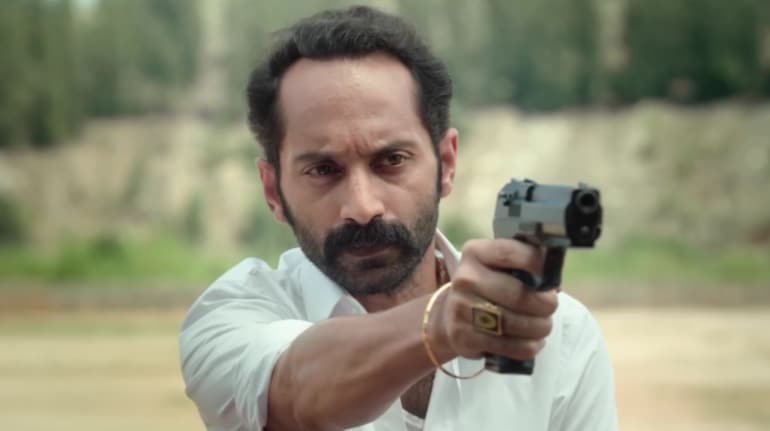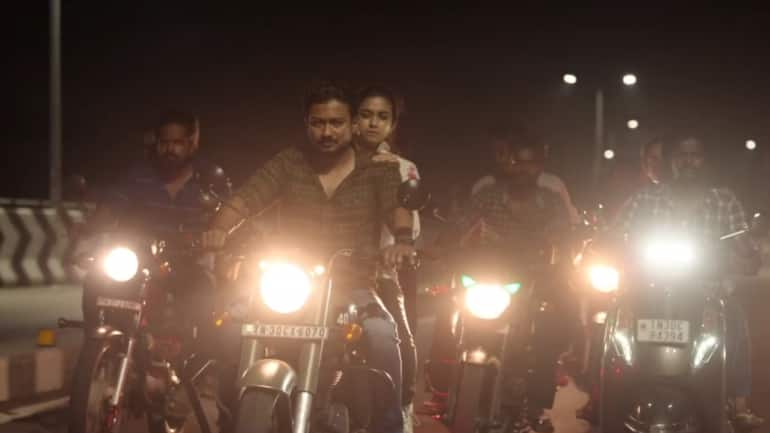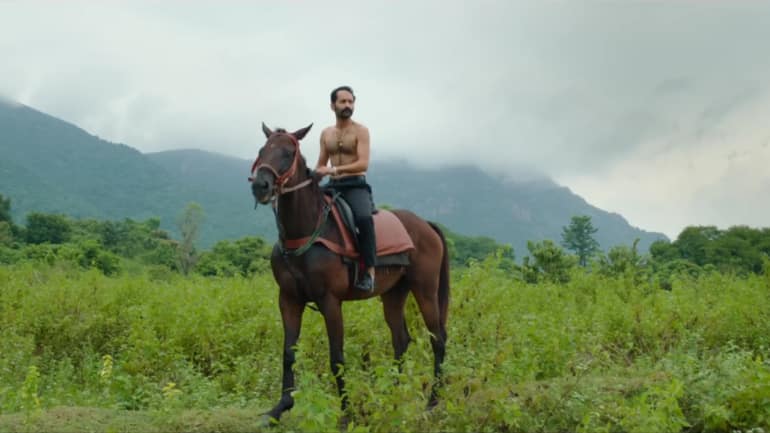



Mari Selvaraj’s Maamannan is about many things – caste and politics, legacy and power, animals and symbols, love and education, violence and silence – but at its heart, it’s about a father and son. Just as the film that inspired it, Bharathan’s Thevar Magan (1992), was too. There is a crucial difference though. In the 1990s' film, the son, Sakthivel (Kamal Haasan), holds his father (Sivaji Ganesan) in awe and steps into his shoes to carry on his legacy. In Selvaraj’s film, the son, Athiveeran (Udayanidhi Stalin), dares to imagine a different future for himself and his father (Vadivelu). It’s a rejection of a legacy of subservience. He dares to dream of an era when pigs can fly.
Thevar Magan is easily among the most influential films to have emerged from Tamil cinema in the '90s. While it’s seemingly about a liberal hero who wants to break free from caste pride and communal feelings, the film has been criticized for simultaneously glorifying the very thing that it wants to despise. For instance, the song ‘Potri padadi penne/Thevar kaaladi manne’ (Sing in praise of the ground beneath the Thevar’s feet) from the film continues to be played in caste-based events of the politically powerful Thevar community in Tamil Nadu.
It's fitting then that Selvaraj’s rewrite of Thevar Magan should have a hero who is named ‘Mannu’ (mud/ground) – if someone should be trampled for another’s rise, is that worthy of celebration? But Mannu isn’t his full name, it is Maamannan, which means ‘Emperor’, and the film’s quest is to make him come to this realization as it travels from the black and white past to the colours and possibilities of the present.
This is popular comedian Vadivelu’s return to cinema after a long hiatus. He had originally played the character Esaki in Thevar Magan, a servant who only exists in the film to serve the Thevar family and sacrifice himself for their well-being. In Selvaraj’s film set in Salem, Vadivelu’s formidable acting prowess is at the forefront as he transforms into a Dalit politician struggling to do right by his son.
 (Screen grab/Sony Music Entertainment)
(Screen grab/Sony Music Entertainment)
Maamannan opens with two intercutting sequences that immediately establish the premise of the film. In a piece of superbly crafted cinema – Rathinavel (Fahadh Faasil) with his race dogs and clansmen and Athiveeran with his pigs and martial arts students – Selvaraj raises the pillars on which his story stands. Selvaraj is known for his effective use of animals as metaphors; in Pariyerum Perumal (2018), it was the dog Karuppi, her death and resurrection; in Karnan (2021), it was a little donkey whose feet are bound to prevent its liberation. In Maamannan, too, the animals play a vital role in understanding the subtext of the scenes.
Faasil is brutal as Rathinavel, and the actor’s Tamil is near perfect. The family setup is similar to that of Thevar Magan. He has an elder brother who is a disappointment, a wife who hardly speaks, and a father whose bigotry he inherits with pride. But he also has an appetite for violence that was characteristic of Mayan (Nassar) from Thevar Magan. Is he then a mix of Sakthivel and Mayan? No, Selvaraj wants us to understand that Sakthivel and Mayan are not opposites, they’re very much on the same side. They are the same people.
There is, of course, Faasil’s incredible ability to be utterly convincing in psychotic episodes, but more terrifying are his subtle expressions. The interval block, in particular, is fantastic – there is a speed and spontaneity to it that elevates the film to a whole other plane. A.R. Rahman’s background score works well in such moments when the film entirely has your attention – the songs though, are not as stirring as they usually are in Selvaraj’s films. They seem force-fitted into the narrative, hammering in the politics of the film rather than drawing us into its world.
 Udayanidhi Stalin and Keerthy Suresh. (Screen grab/Sony Music)
Udayanidhi Stalin and Keerthy Suresh. (Screen grab/Sony Music)
Everyone raves about Faasil’s eyes but in Maamannan, it is also Vadivelu’s eyes that speak a sea of emotions. In one scene, he points a gun at Rathinavel, but it is the audience that he’s facing and asking his questions. The infinite sadness in his eyes is hard to ignore. Stalin, too, delivers a commendable performance, possibly his best so far. The film doesn’t shy away from pointing out how political parties in the state have often let down the Dalits in favour of powerful dominant caste groups, and it’s impressive that the DMK (Dravida Munnetra Kazhagam) scion is part of the cast.
That said, Selvaraj’s women characters so far have been disappointing, and Maamannan too leaves much to be desired. Keerthy Suresh plays Leela, a dominant caste woman, who is into social justice politics. She gets a couple of scenes where she asserts herself but she never really grows beyond being Athiveeran’s “love interest”. Suresh also looks out of place in some of the scenes, perhaps because she’s always in the shadow of Athiveeran’s heroism. She does not have an independent character arc, and the other women have even less to do – they stay in the background and barely speak. Patriarchy is at the centre of caste politics, and one wishes that Selvaraj would do better in this aspect.
 (Screen grab/Sony Music Entertainment)
(Screen grab/Sony Music Entertainment)
While Maamannan is engrossing when it echoes Thevar Magan and forms a dialogue with the earlier film, it flounders in the second half where Selvaraj seems to have run out of ideas. The conflict, so well-staged until then, dissipates into watery drama. The fight scenes become repetitive, and the resolution seems too simple, too convenient. It’s almost as if Selvaraj was debating between the pacifism of Pariyerum Perumal and the pulsating violence of Karnan – and decided a mishmash would please different sections of the audience.
Still, Maamannan is an interesting rebuttal to not just an old film but all that it represented. It is brash in what it wants to say, and unafraid to say it loudly – speaking like an emperor rather than his minion. And that makes it an exciting film for those who understand that art is as much about building a discourse as it is about articulating an emotion or ideology.
Maamannan starring Udhayanidhi Stalin, Vadivelu, Fahadh Faasil, Keerthy Suresh released in theatres on June 29, 2023.
Discover the latest Business News, Sensex, and Nifty updates. Obtain Personal Finance insights, tax queries, and expert opinions on Moneycontrol or download the Moneycontrol App to stay updated!
Find the best of Al News in one place, specially curated for you every weekend.
Stay on top of the latest tech trends and biggest startup news.